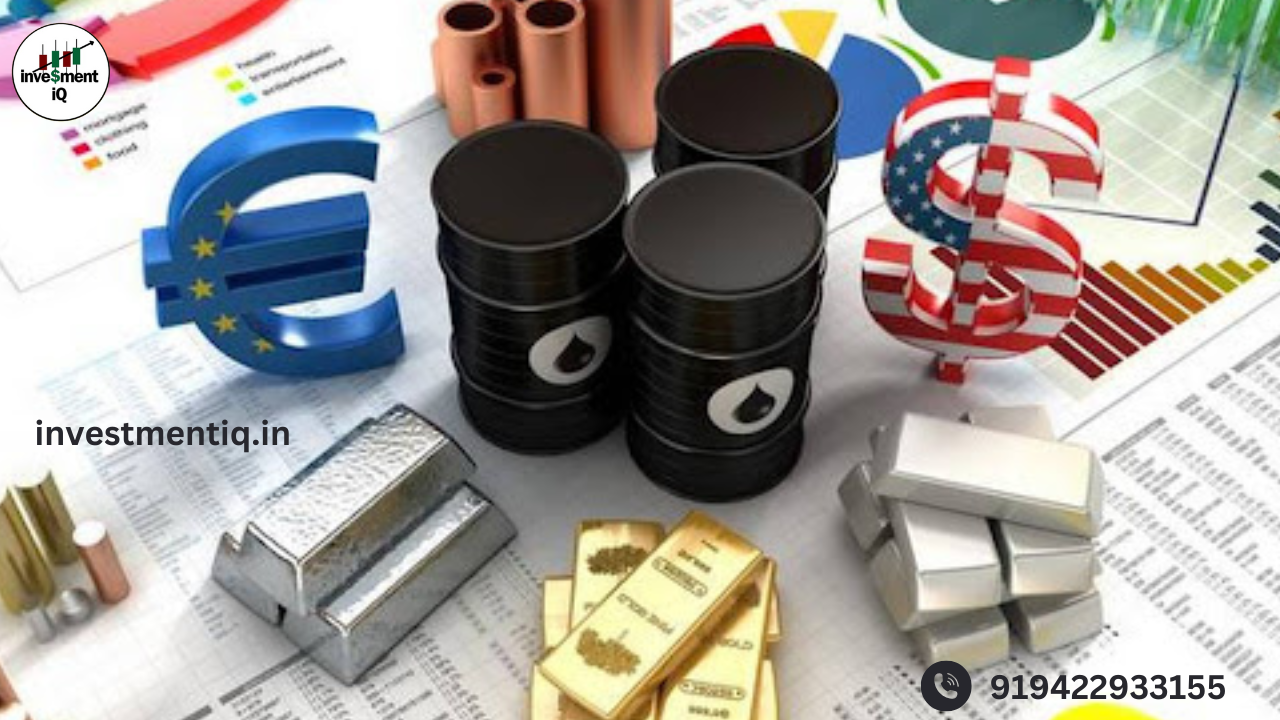
Commodities That Perform Well During Inflation: A Guide for Investors
Expansion is a monetary condition where the general cost degree of labor and products increments, disintegrating the buying influence of cash. During inflationary periods, financial backers look for ways of shielding their portfolios from consistent losses, and one of the most solid procedures is putting resources into wares. Items are unrefined components or essential horticultural items that can be traded, and they will quite often perform well when expansion is on the ascent. In this blog, we’ll investigate the sorts of wares that generally charge well during expansion, how they safeguard abundance, and how financial backers can gain by them.
Why Commodities Perform Well During Inflation
Expanded Request:
As expansion rises, the expense of creation for products increments. This prompts more exorbitant costs for the unrefined components (wares) utilized in the development of merchandise. For instance, assuming that the expense of work or energy expands, makers will pass these inflated expenses onto buyers, driving up the cost of wares.
Shortage and Store network Issues:
Expansion frequently results from production network disturbances or other worldwide monetary elements. Products, particularly those that are restricted in supply, as valuable metals or energy assets, can see their costs flood because of shortage. Thus, this makes them significant during times of expansion.
Genuine Resources:
In contrast to money, stocks, or securities, items are genuine, unmistakable resources. Their characteristic worth doesn’t decrease because of inflationary tensions. As a matter of fact, they frequently expansion in esteem as the buying influence of paper cash diminishes.
Worldwide Interest:
Numerous items are fundamental for modern use and utilization around the world. This worldwide interest, joined with restricted supply, guarantees that these items keep up with their worth over the long haul, even as expansion consumes the worth of monetary standards.
Key Commodities That Do Well During Inflation
Gold
Gold has long been considered the ultimate hedge against inflation. As central banks print more money to combat inflation, the value of fiat currencies tends to decrease. In contrast, gold is a finite resource, making it immune to devaluation caused by excessive money printing. The price of gold tends to rise as investors flock to it in times of economic uncertainty or rising inflation.
Gold also benefits from its status as a safe haven asset. During times of crisis, whether due to inflation, geopolitical tensions, or financial market turmoil, gold often sees its price increase as investors move away from riskier assets.
How to Invest in Gold:
Physical Gold:
Investors can purchase gold coins or bars. However, owning physical gold can incur storage and insurance costs.Gold ETFs and Mutual Funds: These funds invest in gold or gold-related assets like mining companies.
Gold Mining Stocks:
These stocks can offer leveraged exposure to gold, though they come with additional risks.
Silver
Silver offers numerous qualities with gold, making it one more alluring product during inflationary periods. Similarly as with gold, silver is a limited asset, and its worth will in general ascent when expansion disintegrates the buying force of government issued types of money. Also, silver has modern purposes in gadgets, sunlight based chargers, and clinical gadgets, which can drive interest for silver during times of monetary development, further supporting its worth.
Dissimilar to gold, silver is more unstable and has a higher modern interest part, significance its cost might encounter bigger swings. Nonetheless, for financial backers able to brave some instability, silver offers incredible potential as an expansion fence.
How to Invest in Silver:
- Actual Silver: Financial backers can purchase silver coins, bars, or bullion.
- Silver ETFs and Common Assets: These assets track the cost of silver or put resources into silver mining organizations.
- Silver Mining Stocks: These stocks offer utilized openness to the cost of silver.
Oil
Oil is quite possibly of the main item in the worldwide economy, and its value will in general ascent during inflationary periods. Oil is a critical contribution for various ventures, and its cost impacts the expense of transportation, assembling, and even food creation. As expansion causes creation expenses to rise, oil costs frequently stick to this same pattern.
Also, international strains or disturbances in the stock of oil can make cost spikes, further adding to expansion. Oil, hence, goes about as an expansion support as well as advantages from expanded worldwide interest as economies recuperate from recessionary periods.
How to Invest in Oil:
Oil ETFs: These funds track the price of oil or invest in oil companies.
Oil Futures: Investors can trade oil futures contracts to bet on the direction of oil prices
.Oil Stocks: Investing in companies involved in oil exploration, production, or services can also provide exposure to oil prices.
Agricultural Commodities
Agrarian wares incorporate yields like wheat, corn, soybeans, and rice, as well as animals and dairy items. These items will generally ascend in cost during expansion in light of the fact that the expenses of creation, like work, composts, and fuel, increment, and these expenses are given to customers.
Furthermore, expansion frequently relates with ecological elements like dry seasons, floods, or different disturbances to trim creation, which can restrict supply and drive costs higher.
Key agrarian products that perform well during expansion include:
Wheat and Corn:
Staple food varieties with worldwide interest, frequently liable to cost vacillations because of climate and international elements.
Soybeans:
Utilized in food and modern applications, soybean costs will quite often ascend during inflationary periods.
Dairy cattle and Swines:
Meat costs likewise will quite often increment during expansion, particularly when feed costs (which depend on horticultural wares) rise.
Precious Metals Other Than Gold and Silver
While gold and silver are the most notable valuable metals, different metals like platinum and palladium can likewise perform well during expansion. These metals are more uncommon than gold and silver, and their modern purposes in regions like car exhaust systems (for palladium) or hydrogen creation (for platinum) drive interest.
In view of their shortage and novel modern applications, platinum and palladium can frequently see sharp cost increments during inflationary periods.
Conclusion
To safeguard against expansion, financial backers ought to consider expanding their portfolios with a blend of items that generally perform well during inflationary periods. While gold and silver are exemplary decisions, energy assets like oil, rural items, and modern metals like copper additionally give amazing chances to support against expansion.
It’s essential to comprehend that ware costs can be unstable and affected by different elements, including production network disturbances, international pressures, and weather patterns. Thusly, financial backers ought to move toward wares with alert, expand across various areas, and remain informed about the worldwide monetary scene.
you may be interested in this blog here:-
What’s the difference between Treasury bonds, notes, and bills
Can I Open a Brokerage Account for My Child
What is the Contrast Between Favored Stock and Normal Stock?




